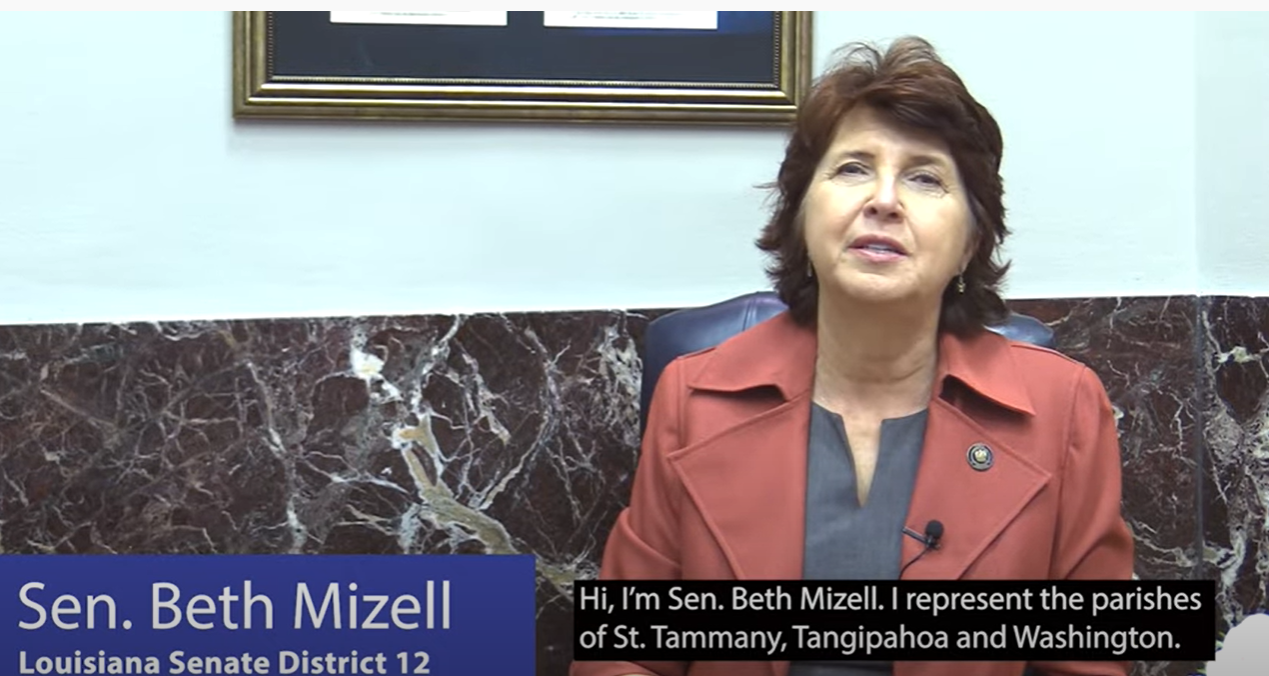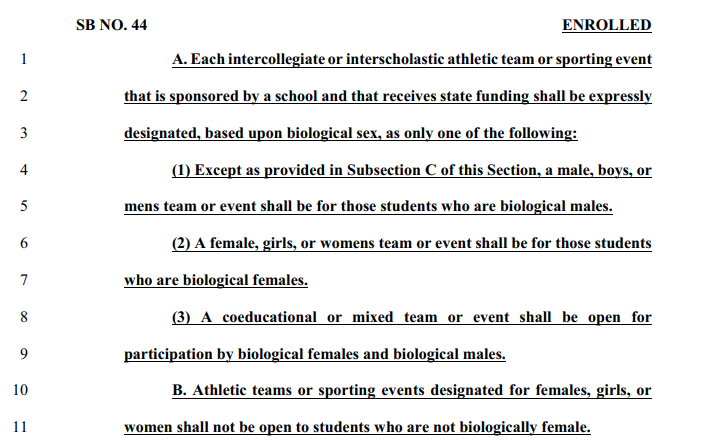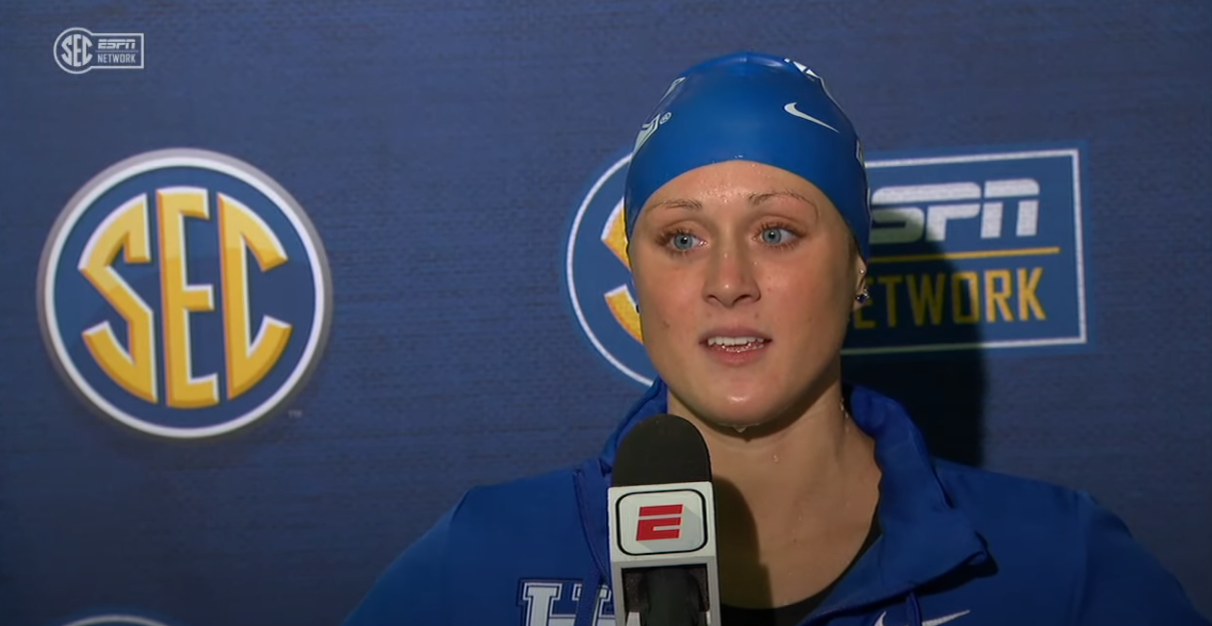
Louisiana Governor John Bel Edwards allowed SB 44 the “Fairness in Women’s Sports Act” to become a law on Monday after vetoing a similar bill in 2021. The law requires athletes in intercollegiate, interscholastic, or intramural athletic teams to participate in sports based on the gender described on their birth certificate. The bill automatically became law after the governor neither signed nor vetoed it for a period of 10 days.

John Bel Edwards via John Bel Edwards for Louisiana YouTube
“Although I vetoed this bill last legislative session, after prayerful thought and deliberation, it has become law this session without my signature,” Governor Bel Edwards said in a statement.
He further added, “Despite it becoming law, I stand by my position on this issue over the last several years as it has been debated. I believe in my heart that discrimination is not a Louisiana value. That remains true today.”
“After passing this legislation overwhelmingly in two consecutive regular sessions, it is clearly the will of the legislature that this bill become law,” he concluded. “Further, it is clear to me, both from the support for this bill and from private conversations from legislators, that Senate Bill 44 would have become law regardless of my action on it.”
Louisiana becomes the 18th state to enact legislation that protects the integrity of female competition in sports, although West Virginia’s ban was struck down by a federal court.

Official portrait of Louisiana Governor John Bel Edwards. Photo Credit: Richard David Ramsey, CC BY-SA 3.0 <https://creativecommons.org/licenses/by-sa/3.0>, via Wikimedia Commons
Bel Edwards also pointed out in his press release that Louisiana has not had any cases of transgender athletes competing in female sports and therefore does not need a law prohibiting it.
“What we are not seeing is the problem this bill purportedly seeks to fix,” Bel Edwards said. “It does not achieve its stated purpose for one simple reason — the problem doesn’t exist in our state because the Louisiana High School Athletics Association already has policies in place that prevent any unfair advantage in athletic competitions. Indeed, neither the author nor anyone else has identified any instances in Louisiana.”

President Donald J. Trump meets with Louisiana Gov. John Bel Edwards Wednesday, April 29, 2020, in the Oval Office of the White House.(Official White House Photo by Shealah Craighead) Photo Credit: The White House from Washington, DC, Public domain, via Wikimedia Commons
According to the LHSAA handbook on page 196, the LHSAA does not have an official policy regarding “Gender Identity Participation” but it does outline a policy for handling cases of transgender athletes seeking to compete outside their birth gender.
“A student-athlete shall compete in the gender of their birth certificate unless they have undergone sex reassignment,” the handbook states.
The policy explains that such students must fully complete sex reassignment surgeries two years prior to competing in the reassigned gender and they must complete hormonal therapy for “a sufficient length of time to minimize gender-related advantages in sports competition.” Final eligibility is determined by the Hardship Committee.

Louisiana Governor John Bel Edwards speaking to the media in Lafayette, Louisiana, on August 3, 2016 Photo Credit: Batch1928 44, CC0, via Wikimedia Commons
The Louisiana legislature passed the SB 44 by a 29-6 margin in the Senate and a 78-17 margin in the House.
The Bill’s sponsor, Republican Beth Mizell, hopes her bill will protect biological female athletes from the unfair advantage biological males competing as transgender women, even after undergoing hormone therapy, maintain.
“Women have worked too hard for too long to get to the competitive level we have attained to now face an unfair playing field,” Mizell told USA Today.

Beth Mizell via LAHospitalAssn YouTube
SB 44 reads in part, “Each intercollegiate or interscholastic athletic team or sporting event that is sponsored by a school and that receives state funding shall be expressly designated, based upon biological sex, as only one of the follow: (1) Except as provided in Subsection C of this Section, a male, boys, or mens team or event shall be for those students who are biological males. (2) A female, girls, or womens team or event shall be for those students who are biological females. (3) A coeducational or mixed team or event shall be open for participation by biological females and biological males.”
It also states, “Athletic teams or sporting events designated for females, girls, or women shall not be open to students who are not biologically female.”

SB 44 via Louisiana State Legislature
Voters Favor Banning Transgender Athletes from Women’s Competitions
The tides are shifting in the cultural debate over whether it’s fair to allow transgender men to compete in women’s sports. The rise of NCAA swimmer William Thomas, who identifies as a woman, and who won the 500m freestyle championship in the women’s category this year, is drawing more attention to the issue. Women who competed against William, who swims under the name Lia Thomas, have complained about his obvious physical advantage in races.
University of Kentucky swimmer Riley Gaines tied with Thomas for 5th place in the 200-yard freestyle at the National Championship and has been outspoken in her criticism of the NCAA’s current transgender swimming policy since that race.
“It’s just night and day difference between male and female,” Gaines, told Fox News. “To pretend otherwise defies logic, reason, science and common sense.”

Riley Gaines via Kentucky Wildcats TV YouTube
In a recent survey of likely voters in Arizona, Georgia, Nevada, New Hampshire, Pennsylvania, and Wisconsin 56% of participants supported (33 percent opposed) laws to protect women’s sports at the K-12 and collegiate levels. Additionally, 56% of responders also said they support laws banning puberty blockers, cross-sex hormones, and physical sex change surgeries for children.
“The results were consistent across the board,” the president of the American Principles Project, Terry Schilling, said in response to the survey. “Strong majorities of voters support defending women’s sports, protecting kids from being pushed into sex changes, removing age-inappropriate sexual lessons from schools, and cracking down on Big Tech censorship. While the left-wing media may attack these positions as ‘bigoted,’ the truth is that these are commonsense views held by most Americans, even in highly competitive battleground states.”

Source: NCAA Championships YouTube
What do you make of Louisiana passing this law?